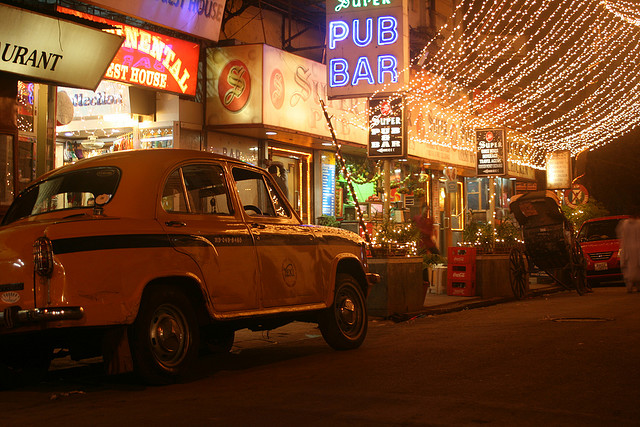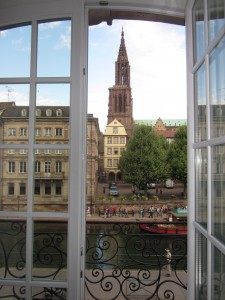
The Council of Europe has a project called Edgeryders (info). Just as it is drawing to a close, it seems to hold a piece of the future; never before, in my experience, had a rather technical project born of a public institution (producing recommendation for a reform of European youth policy: hardly the stuff of dreams) driven so much citizen engagement, and even ownership.
As part of the project, we organized a conference called Living On The Edge (#LOTE to the initiates), that took place in Strasbourg in June 2012. To my great surprise, about a month ago the Edgeryders community practically summoned itself to Brussels for a #LOTE2 (info), to take place on December 6th to 9th. And here’s what’s happening:
- people are paying out of their own pocket to participate. Since edgeryders tend to be young and strapped for cash, the community is trying to come up with ways to support each other. Those of us who leave in Brussels are opening their homes to host fellow #LOTErs.
- the European Parliament stepped in to provide a room for free for one of the days – credit must go to 25-years-old Amelia Andersdottir, MEP for the Swedish Pirate Party, and to her assistants
- a local artist offered to rent us studio space for very cheap for the remaining days – the poorest edgeryders can camp there, too.
- one particularly enterprising member of the community picked up the phone and called AirB’n’B. They, too, stepped in, offering a €25 voucher to #LOTErs wishing to stay with an AirB’n’B host in Brussels. Intrigued by the project, they are also sending their experts on community building to the event.
- all organization is run by members of the community who volunteered. The result is an amazing rainbow of generous, skilled young Europeans. Asta (Icelandic) is sorting out logistics. Noemi (Romanian) and Andrei (Moldovan) keep the website updated and makes sure no one falls through the crack. Giovanni (Italian) acts as media liaison. Matthias (German) Michal, Petros, Mike (Poles) and Eimhin (Irish) are writing specifications and getting geared up to redo the Egderyders website according to the community’s requests.
- institutions are taking notice. Senior officers engaged and provide suggestions of people to invite. Every day we receive new offers and helpful suggestions.
- meanwhile Elena – a 23-year-old Russian woman who lives in Sweden – inspired by the project has started Edgeryders Sweden, reusing the Edgeryders name, aesthetic, visuals and mystique (it’s okay – everything is licensed under creative commons). Elena has not participated in Edgeryders – she learnt about it from an acquaintance.
This is a taste of what might happen if we ever got serious about involving citizens in public policy. The Council of Europe is holding its own at its center. But its stake in #LOTE2 has become a strange creature: on the one hand its leadership on Edgeryders as a source of inspiration is recognized by all. On the other hand, however, it has little choice but to go along. The community has pretty much put together a zero-budget event: paradoxically, if the Council of Europe were to disassociate itself from this meetup, #LOTErs would probably shrug it off and go ahead. And why not? “We should think of government as platform”, open government people like to say. And platforms don’t make decision: they enable people to do whatever they want to do in the name of the common good.
It could be the future of government: build platforms for collective actions, then step back and accept that you, as an elected representative or a civil servant, should make as few operational decisions as possible, and let yourself be overridden by ordinary citizens in most situations. On the other hand, it could also be just a golden moment, the last autumn glow: that’s what it will look like, retrospectively, if European institutions don’t see the potential of all this goodwill to generate more goodwill and creativity, or simply can’t bring themselves to give up control for citizens to take ownership. In that case, the system will revert by default (without even needing to decide to) to an administration-driven, top-down mode. Which does not work – just ask disgruntled European citizens what they think of the effectiveness of their common institutions – but is so much more reassuring.

